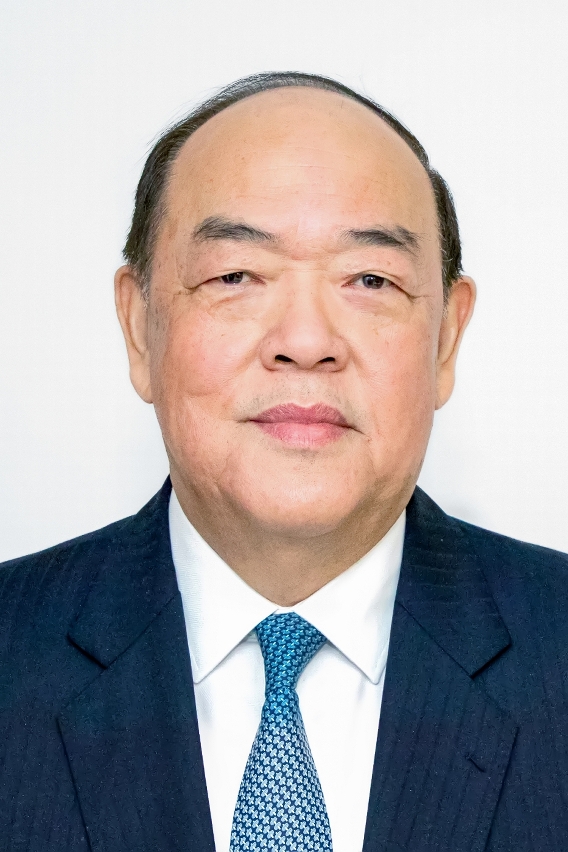 The Chief Executive, Mr Ho Iat Seng
The Chief Executive, Mr Ho Iat Seng
The Chief Executive, Mr Ho Iat Seng, noted in his first New Year message that 2020 marked not only the commencement of the Fifth-term Government of the Macao Special Administrative Region (SAR) but also the beginning of the third decade of the Macao SAR. The Government looked forward to tremendous opportunities for Macao’s advancement, but also recognised there would be all kinds of challenges to face. No matter how hard it might be to move forward, the Government would persist – in full confidence and in a spirit of responsibility – with its work. With the help of innovative thinking that kept pace with the times, the Government would broadly gather together all sectors, using that collective wisdom and power in order to push the Macao SAR’s progress towards new milestones.
Mr Ho said Macao people were welcoming the start of 2020 at a time of happy celebration for the 20th anniversary of the establishment of the Macao SAR. The Chief Executive said that – as representative of the Macao SAR Government, and in a personal capacity – he extended his heartfelt New Year best wishes and seasonal greetings to all Macao people and those who worked and lived in Macao.
The Chief Executive said that 2019 had been a significant year for Macao, involving a series of events held to celebrate the 20th anniversary of Macao’s reunification with the motherland. It had also been the city’s honour to receive President Xi Jinping on a visit, during which he gave important speeches and attended celebrations for the Macao SAR’s 20th anniversary and the inauguration ceremony of the Fifth-term Government of the Macao SAR.
During the two decades following Macao’s reunification with the motherland, Macao had successfully and unprecedentedly implemented the principle of “One country, two systems” with Macao characteristics. The Government had overseen the achievement of fast, sustainable economic development; gradual improvements in people’s livelihoods; social stability and harmony; and multicultural inclusiveness.
Mr Ho also pointed out that the development of Macao during the past 20 years had fully demonstrated the scientific basis and strong vitality of the “One country, two systems” principle. President Xi comprehensively and systematically summarised the “Four Experiences” from successfully implementation the principle of “One country, two systems” with Macao characteristics. He also put forward – from a strategically-advantageous position – his “Four Expectations” – which provided a clear direction and guidance for actions to further the progress of Macao.
Mr Ho stressed that the new Macao SAR Government would: comprehensively and properly implement the “One country, two systems” principle; strictly follow the Constitution and the Macao Basic Law; and safeguard the absolute power of governance of the Central People’s Government, and the sovereignty, security and development interests of the country. While doing so, the Government would make use of Macao’s advantages and continue exploring the developmental path for implementation of the principle of “One country, two systems” with Macao characteristics. This would be with the aim of optimising the implementation and advancement of progress for the Macao SAR, he added.
Meanwhile, the Government would diligently and comprehensively uphold the spirit of President Xi’s instructions, and implement the “Four Aspirations”, “Four Persistences” and “Four Expectations”. The Government should show great foresight, be well-prepared for adverse situations, be innovative and pragmatic, and promote all construction and development projects targeting the positioning of "One Centre, One Platform, and One Base".
The Chief Executive said the Government would focus on work that was of most concern to the public. This included: expediting public administration reform to establish a government that served the public in a lawful and impartial manner for the benefit of the people; promoting adequate economic diversification and striving to develop nascent industries and business models, in order to foster new opportunities for economic growth; and optimising conditions for improvement of people’s livelihoods in order effectively to improve their quality of life. The Government’s work also involved: enhancing youth services, creating favourable conditions for young people to mature, develop and succeed; and strengthening young people’s national awareness in order for them to pass on to the next generation the core values of loyalty to the country and to Macao.
The Government’s work additionally included: making use of Macao’s advantages as a multicultural society; facilitating international exchanges by establishing Macao as a base for international multicultural exchanges and cooperation with an emphasis on Chinese culture; and strengthening regional cooperation and securing Macao’s foothold in the Guangdong-Hong Kong-Macao Greater Bay Area initiative. The Macao SAR Government would also work to deepen Macao-Guangdong-Zhuhai cooperation; and – with Hengqin as a focus for progress – gradually and in an orderly way promote further regional cooperation and broaden the horizons for the development of Macao.
In the coming year, Macao would begin a new journey, as Macao people undertook new tasks, developed a new outlook, and enabled collaboration between the Government and citizens, in order to seize the opportunities arising from national strategic development and a series of supportive policies from the Central Government. Macao would more actively integrate into the overall national development plan, in order to ensure a prosperous and economically-diversified Macao. The Government would commence its new development plan, and continue with Macao’s successful implementation of the “One country, two systems” principle, said the Chief Executive.


